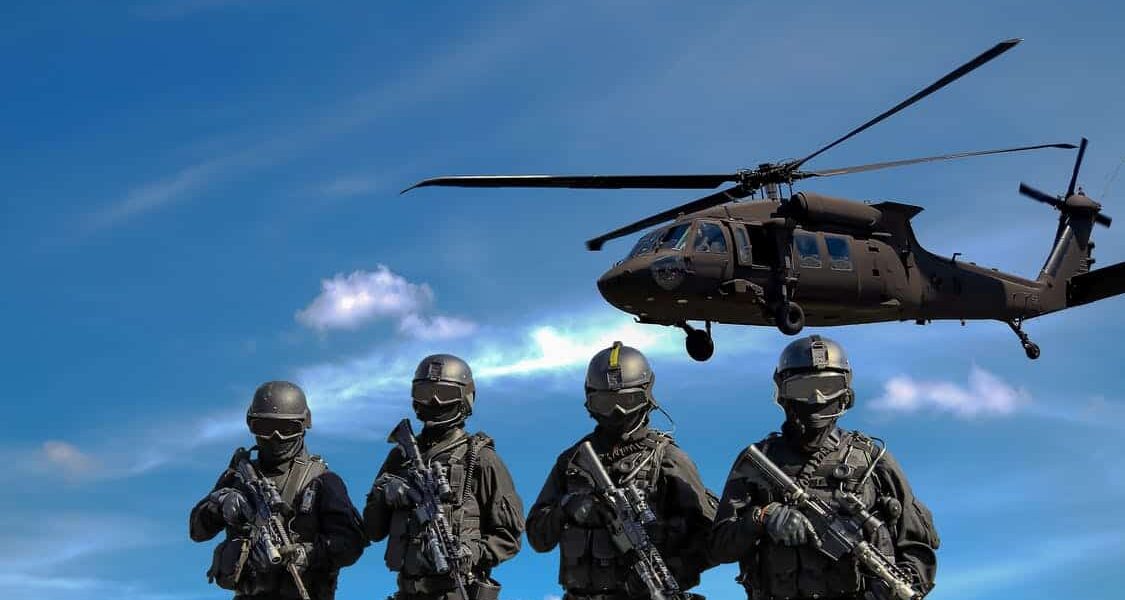Taming the Battlefield Machine: US Partner with Austria, Bahrain, Canada, and Portugal for Safer Military AI
As the battlefield is becoming increasingly dominated by lines of code and algorithms, with artificial intelligence (AI) rapidly transforming modern warfare, a recent international conference, with delegates from 60 countries, takes on a critical challenge.
The United States, joining forces with Austria, Bahrain, Canada, and Portugal, is stepping up efforts to ensure the safe and ethical use of AI in military applications by establishing working groups focused on developing global safety standards.

A Global Conversation on AI Safety
US officials revealed details of new international “working groups” following the recent conference, as it builds on existing efforts for ethical and safety standards for military AI and automation, all without hindering its development.
The US will co-lead a working group with Bahrain on “assurance,” which tackles the technical challenges of building reliable and controllable AI systems. This includes rigorous testing, clear definitions of intended use, and safeguards against unintended behaviour or malfunctions.
Canada and Portugal will lead the “accountability” group, focusing on human oversight and decision-making. This involves ensuring personnel are well-trained and understand the limitations of AI, while also maintaining transparent and auditable documentation on how these systems operate.
Austria will head the “oversight” group, looking at broader policy issues. This includes legal reviews to ensure compliance with international law, oversight by senior officials, and mitigating potential biases in AI systems.
Why Now? The Need for Global Norms
While the US initiative isn’t solely a reaction to specific incidents, recent conflicts have undeniably intensified the need for international consensus.
The US has been a vocal advocate for responsible AI development in the military domain, leveraging existing efforts within the Department of Defense. These efforts have laid the groundwork for ethical AI principles in weapon systems, a commitment spanning over a decade.

However, military applications of AI go beyond just weapons. It encompasses back-office systems for cybersecurity, logistics, and personnel management. This includes cutting-edge technologies like generative AI, as well as decision support systems that empower leaders at all levels, from the battlefield to the boardroom.
The US isn’t alone in its push for safe and ethical AI. In April, the US joined forces with the UK to develop rigorous testing procedures for cutting-edge AI models. This builds on commitments made at last November’s AI Safety Summit, demonstrating a global commitment to responsible AI development.
Beyond the Declaration: A Collaborative Future
The US emphasises that global leadership is essential for success. While the US is a leader in AI development, other countries offer unique perspectives and valuable experience.
Madeline Mortelmans, acting assistant secretary of defense for strategy and keynote speaker at the conference, told Breaking Defense, “Our partners in Ukraine have had unique experience in understanding how AI and autonomy can be applied in conflict.” She highlighted the invaluable insights gained from their firsthand experience with AI deployment in combat situations.
While the working group comprising Austria, Bahrain, Canada, and Portugal will each contribute unique expertise and perspectives, enriching the collaborative efforts further.
This initiative marks the beginning of a long-term commitment. The US envisions annual conferences and ongoing collaboration among participating nations, fostering the exchange of knowledge, conducting joint exercises, and sharing best practices.
Ultimately, the goal is to ensure responsible development and use of military AI, preventing future tragedies and safeguarding the lives of soldiers and civilians alike.


































































































































































































































































































